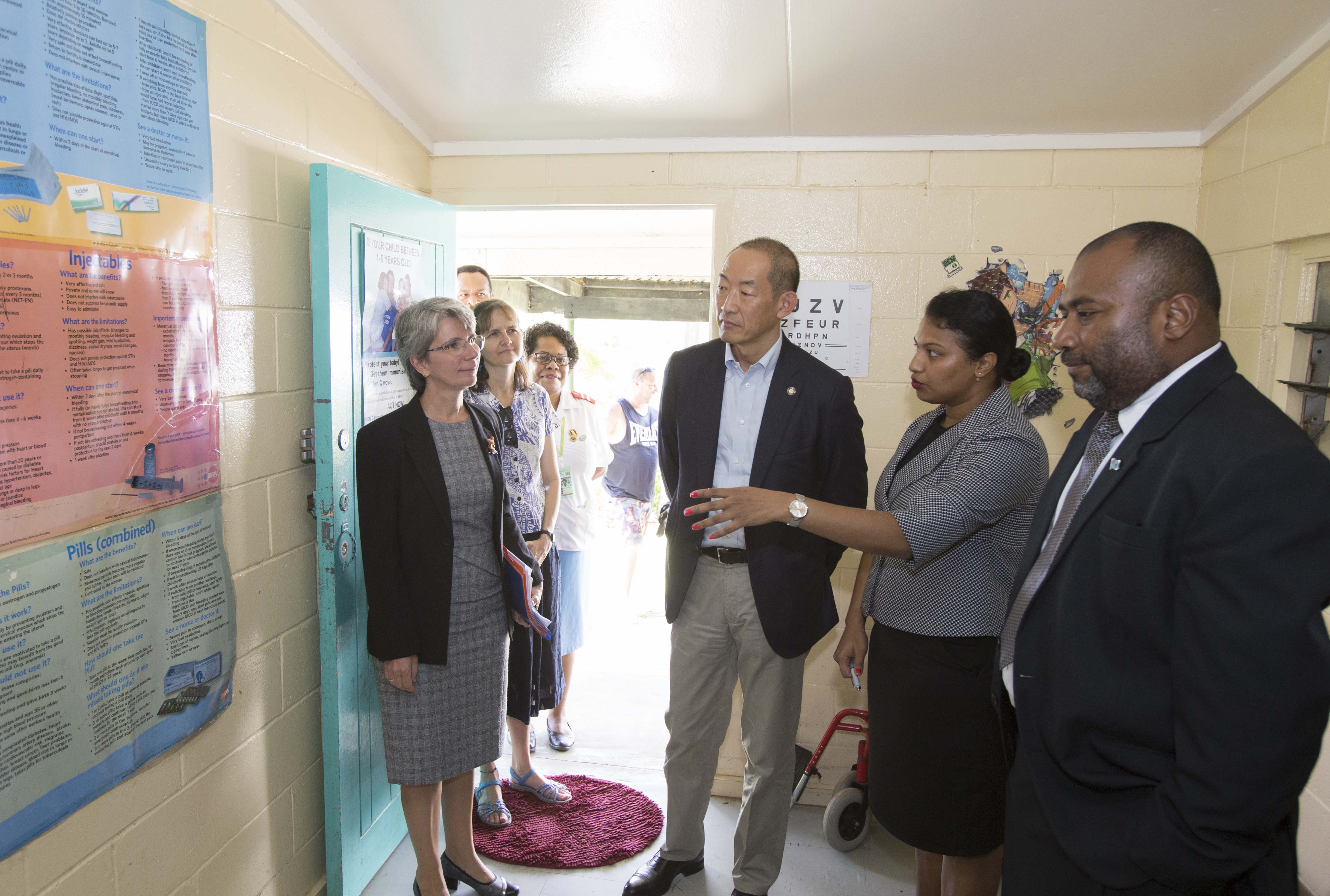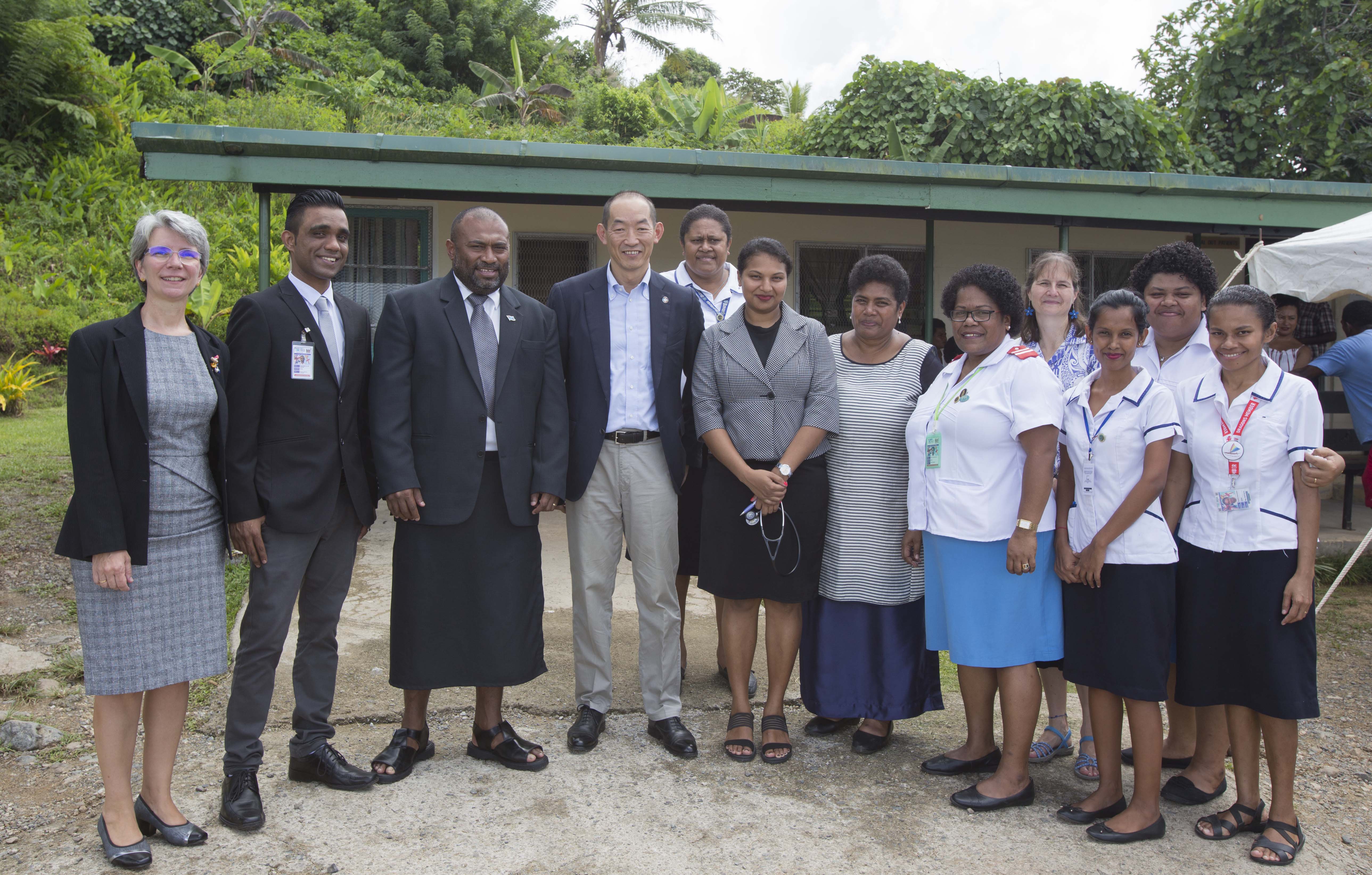This editorial opinion was written by WHO Representative to the South Pacific Dr Corinne Capuano in support of World Health Day. It is republished from the 7 April 2019 edition of Fiji’s ‘The Sunday Times’.
At heart, primary healthcare is about people. It is about doctors and nurses at community health centers, the people they care for, and the communities they protect. It is also about bringing care close to where people live, to help them improve their health and maintain their well-being.
It is so much more than seeing a community nurse for a vaccination, or a doctor for your regular checkup. Primary healthcare can be the most powerful tool a country has to improve the health of its people. It can meet most of our healthcare needs, respond to the conditions in which we live, work and learn, and empower individuals, families and communities to take charge of their well-being.
Today is World Health Day, and the World Health Organization is working globally to highlight the importance of strong primary healthcare. Why? Because without our health we have nothing – it’s what matters most. Health is a human right and primary healthcare is the smart investment. Investing in primary healthcare improves health, saves lives and costs

When it comes to health budgets, primary healthcare gives us the greatest return, both social and financial. It is the strongest tool we have to address the complex health challenges facing Fiji and the Pacific.
If correctly resourced, good quality primary healthcare can prevent, identify and manage illnesses early to reduce the burden on the health system. We can prevent noncommunicable diseases like
Primary healthcare workers are connected with the community and can
Similarly, health workers at community health centers and clinics are the first line of
Investment in primary healthcare can build resilience against the health impacts of a changing climate – such as increasingly frequent and extreme weather events, and threats to safety

Most importantly, primary health care workers know their community. They have a continuing and trusted relationship with their patients and are familiar with their history. Equally, they know the local environment, the traditions and practices of their communities. Knowing the full picture improves care and saves money.
So, we know that primary healthcare is one of the most effective and efficient ways to provide health for all. A health system with strong primary healthcare delivers better health outcomes, is cost-effective and improves quality of care.
To truly have
This World Health Day, we encourage you, the people of Fiji, to reach out to your local health centre. Meet the health workers in your area. A well utilized primary healthcare system tends to attract more investment, and if used, will only improve – particularly as staff get to know you and understand your health needs and those of your family and community.
Using and valuing local health services will ensure everyone has a healthy life and a sustainable future.
—
In the Pacific, health for all can only be achieved through strong primary healthcare. To celebrate World Health Day, we also speak with health leaders from across the Pacific, to hear exactly why primary healthcare is so important in their respective countries:
